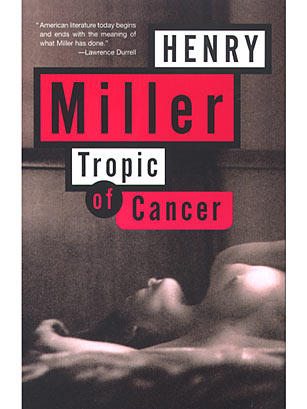
Henry Miller's Tropic of Cancer is now known as a masterpiece of American post-modernism, but for thirty years after its 1931 publication, it was illegal to sell the raunchy novel in the U.S. Miller's frank description of his narrator's sexual exploits in bohemian Paris was far outside what was accepted by the American mainstream of the time. The case against the book was most eloquently put forward by Pennsylvania Supreme Court Justice Michael Musmanno. In the case which finally removed the state's ban against the work in 1966, Musmanno wrote in the dissenting opinion, "Cancer is not a book. It is a cesspool, an open sewer, a pit of putrefaction, a slimy gathering of all that is rotten in the debris of human depravity." Thankfully, Miller's fellow writers held the work in much higher esteem. Luminaries from George Orwell to Norman Mailer said they were inspired by the Cancer's unconventional narrative and intoxicating prose and made sure the tale did not slip too far from America's consciousness. When the ban on the work was finally lifted, it went on to enjoy great success, with Mailer once calling it "one of the ten or twenty great novels of our century, a revolution in consciousness equal to The Sun Also Rises."